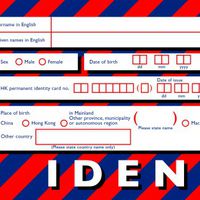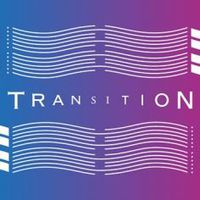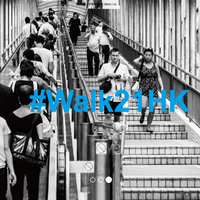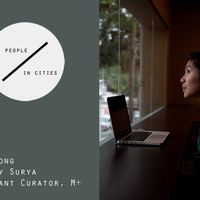WMA Masters | international photography award open call

The WMA Masters (formerly WYNG Masters Award) welcomes photography submissions from all over the world on this year’s theme of MOBILITY. Images must relate to the theme and be made in or relate to Hong Kong.
The deadline for submission is 30 September 2016 (23:59 Hong Kong time; GMT + 8:00).
From now till 30 September 2016 the WMA Masters invites both international and Hong Kong artists and image-makers to submit photographic-based work. The visual content must be related to Hong Kong and to the chosen theme MOBILITY.
Finalists will be selected by a panel of international judges and their works will be exhibited in Hong Kong in Spring 2017. A full-colour catalogue will be published to coincide with the exhibition. The WMA Masters will also host a series of talks, panels, and seminars during the exhibition period. The winner of WMA Masters will receive a cash prize of HKD$250,000. Each of the six additional finalists will receive HKD$15,000.
This year, applicants to WMA Masters who are Hong Kong residents will have a chance to be invited to submit an expression of interest for a professional practice residency at FORMAT International Photography Festival 2017. The winner of the residency will have an opportunity to visit FORMAT for the launch and have access to events, portfolio reviews, as well as have their work included in the FORMAT catalogue.
The WMA Masters’ international panel of judges is comprised of industry leaders in photography, art, publishing, and non-profit.
About MOBILITY
Mobility is freedom of movement - across oceans and continents, across cities, streets and neighbourhood, perhaps across race, religion or even gender.
Hong Kong is a compact modern metropolis with world class transport and logistics system, where people and goods are constantly on the move and commuters have their routes mapped out to the exact subway carriage number in order to save the most time getting to the exit on the other side.
Mobility means circulation. Blood needs to flow, so does Chi. Blockage or leakage means disease. Babies learn to move at an early age, but mobility can be a major challenge for the elderly. Money and deals, traffic and even population needs to move smoothly, preferably in the right direction.
Mobility is moving vertically up and down buildings, mountains and seas. It is human to aspire to move up the ladder, whether in the corporate, institutional or social. Hong Kong had always been the land of opportunity, where hard work might move one’s children, if not oneself, upwards.
Parents still scheme to get their children the best chance in life in the education system.
But more and more social mobility is restricted, in one of the world’s most unequal community, where poverty is prevalent in the midst of plenty.
Hong Kong is the so-called borrowed place on borrowed time, where people come to get rich and get out, and end up putting down roots in spite of themselves. Now we are caught in a dilemma. How do we build a future in a place where nothing stays still, or lasts? Can we all still get where we want to go? And when we arrive, are we ever allowed to stop? Are we moving? Or are we still? What happens if there is no mobility?
And what happens if mobility is endless?
Similar content
deadline
15 Jan 2016
deadline
15 Sep 2017
deadline
15 Dec 2016
deadline
04 Apr 2014
from - to
03 Oct 2016 - 07 Oct 2016






